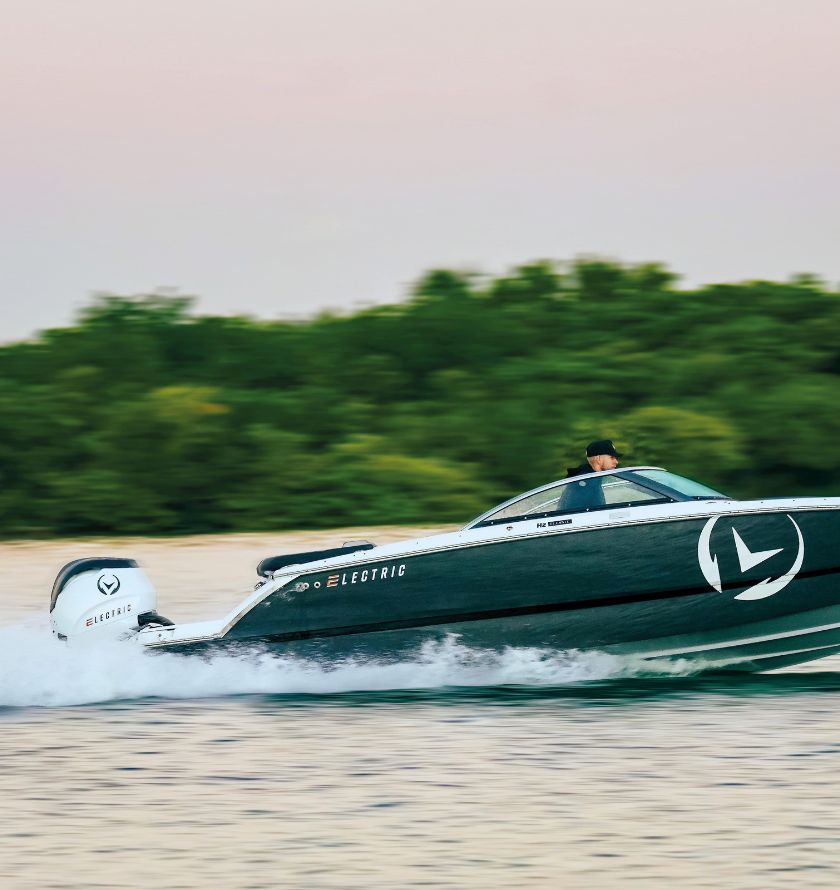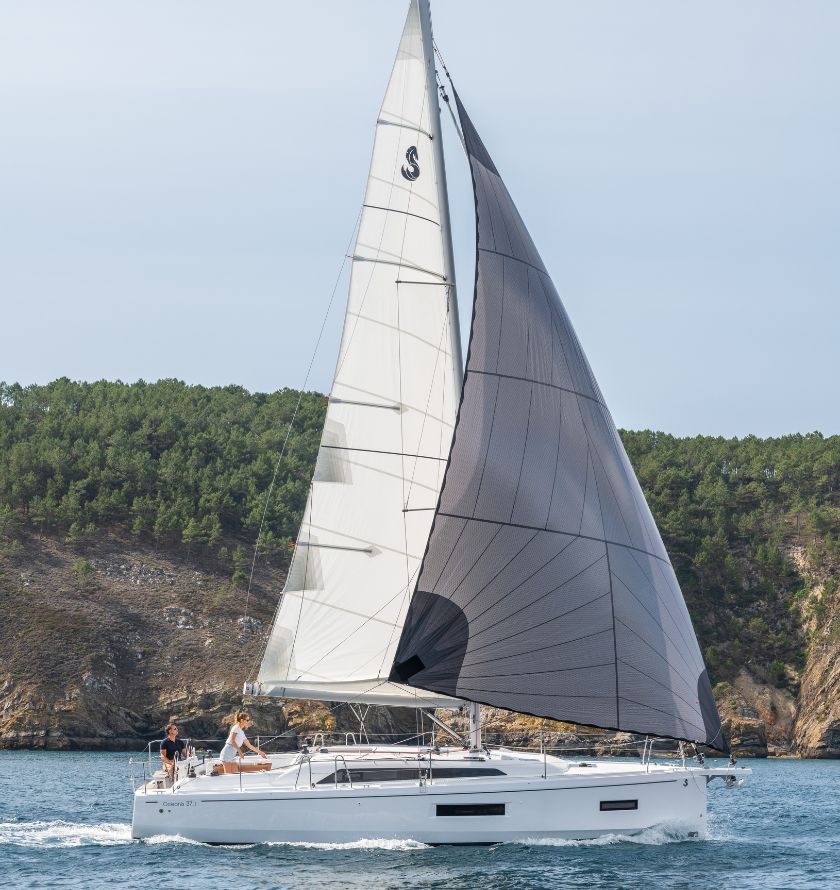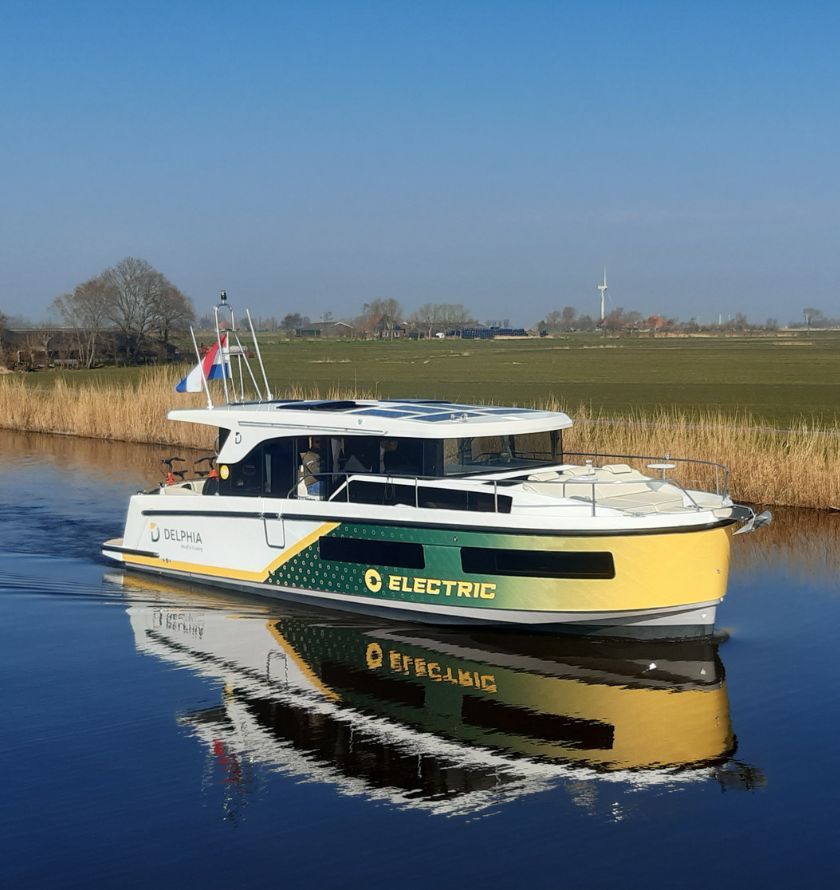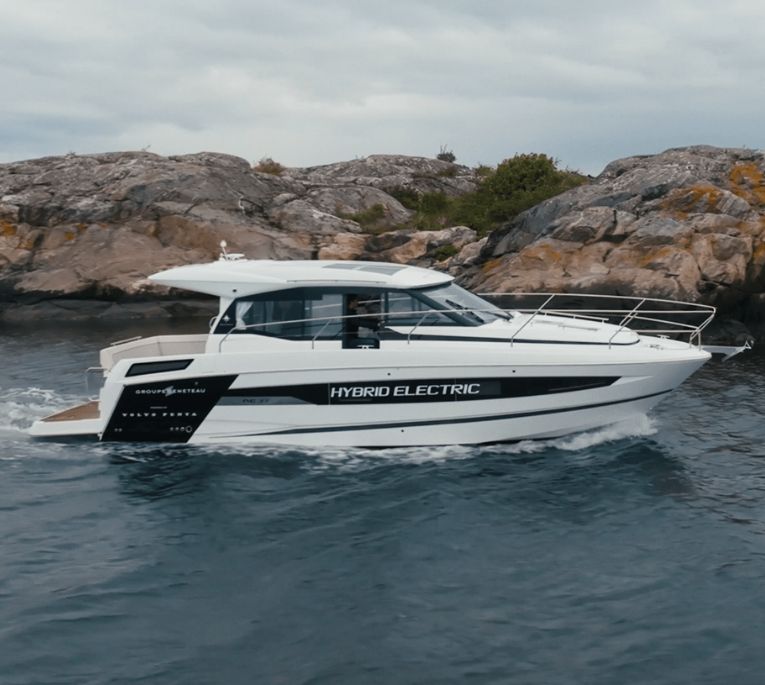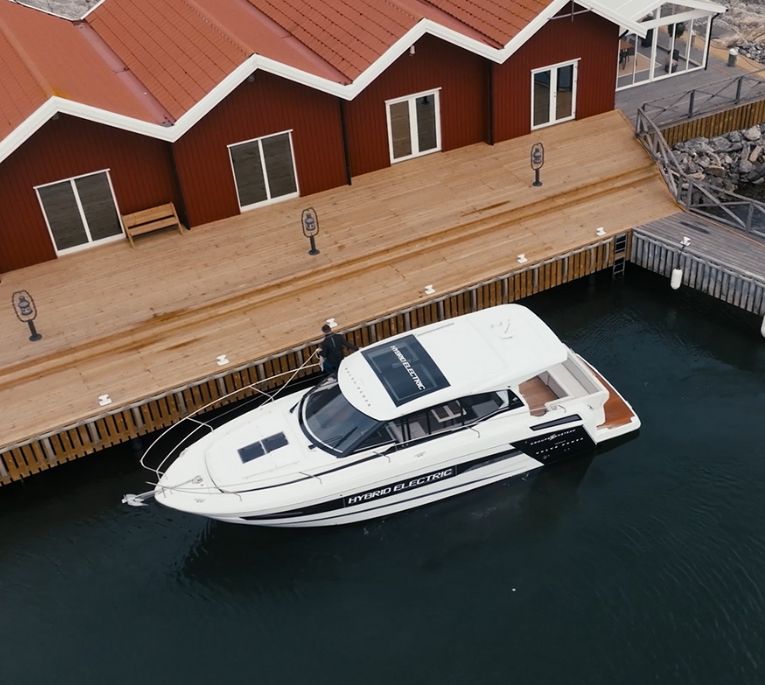Unveiled at the Düsseldorf show in 2023, the Jeanneau NC37 is a concept boat fitted with a hybrid electric propulsion system. Our engine partner Volvo Penta trusted us with this pilot project based on a groundbreaking methodology: media, clients and dealers were invited to take part in the tests in Sweden to share their opinions and expectations. Erik Stromberg, Group Power and Motor Yacht Product Director, shares his insights.
Why and how did this collaboration come about?
Thermal engines make it possible to go quickly and cover significant distances, while hybrid electric offers an augmented experience on the water, combined with being more respectful of the marine environment. However, very few players on the market offer this. For sustainable innovation, Volvo Penta is one of our longstanding partners. This pilot project was an outstanding opportunity to help accelerate together the transformation of recreational boating.
What are the main advantages of this boat fitted with an electric hybrid system?
The experience on the water is quieter and more intuitive, handling is more responsive and docking maneuvers are facilitated by the precision joystick and electric assistance system. This is particularly appreciated when docking and leaving port! The battery also enables you to continue enjoying all the comfort on board without running the thermal engine when stopped or at anchor: which results in less CO2 emissions locally. In November 2023, the Jeanneau NC 37 was recognized with a Best of Boat award!

